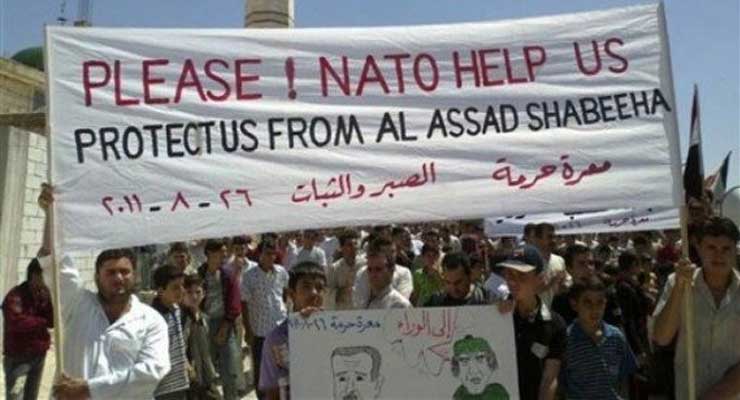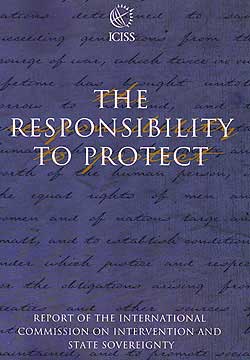
Following the genocides in Rwanda, Bosnia, and Kosovo in the 1990s, there was a serious international debate on how the world could effectively react when citizens’ human rights are grossly and systematically violated. The failure of UN peacekeepers in Rwanda who watched the Hutu slaughter 800,000 Tutsi, the failure of the UN presence to prevent murderous ethnic cleansing in Bosnia, and NATO’s controversial forceful military intervention in Kosovo, all showcased the frustrations and contentions resulting from both inaction and action in the face of atrocities.
There was clearly a need for the international community construct a new method by which to garner wider support to deal with mass atrocities. Thus, The Responsibility to Protect (R2P) was created in 2005. This doctrine deemphasizes humanitarian military intervention by outside states, focusing instead on the duty of a state toward its own population. Specifically, it asserts that “sovereignty is a responsibility” of the state. The state should be accountable for four specific crimes (genocide, war crimes, crimes against humanity, and ethnic cleansing), and must take responsibility for the welfare of its citizens and the humanitarian consequences of conflict. Only when a state fails to protect its people, whether because of lack of ability or lack of willingness, should the responsibility shift to the broader international community. Military intervention is a last resort.
 Unlike prior human rights doctrines, R2P focuses not only on helping states when a crisis actually occurs, but takes on a holistic approach, determining the root causes of atrocities as well as how to rebuild post-conflict. R2P seeks not to intervene militarily, but to delineate and reinforce the obligations of states to prevent, protect, and rebuild. It provides the framework for addressing all stages of the conflict cycle and for ensuring the focus on protection against mass human atrocities in times of conflict.
Unlike prior human rights doctrines, R2P focuses not only on helping states when a crisis actually occurs, but takes on a holistic approach, determining the root causes of atrocities as well as how to rebuild post-conflict. R2P seeks not to intervene militarily, but to delineate and reinforce the obligations of states to prevent, protect, and rebuild. It provides the framework for addressing all stages of the conflict cycle and for ensuring the focus on protection against mass human atrocities in times of conflict.
R2P clearly should have applied in Syria, from back in 2000 when Bashar Assad ruled under an authoritarian regime. As stated in the Syria 2014 Human Rights Report, from the beginning “the regime routinely violated the human rights of its citizens…there were widespread abuses and violations of persons whom the government arbitrarily and unlawfully killed…government forces conducted systematic attacks against civilians in hospitals, residential areas, schools, and camps holding international displaced persons… the regimes continued the systematic widespread use of torture and rape, including those against children, targeted killing of protesters, bystanders, journalists, and medical professionals… restricted press, internet, and academic freedoms.” The list goes on. So, clearly, the government of Syria failed to uphold its responsibility to protect, and thus, this responsibility shifted to the international community.
However, the US avoided using R2P as its basis for combatting the Syrian government’s gross violations of human rights. Perhaps if the US had seen the Assad regime as a problem, at least from 2011, just before the civil war began and less had been killed, the Obama administration would have used R2P. The escalation of turmoil, with the rise of ISIS, made the US hesitant to invoke R2P because of the fear of eventually committing to military intervention. The Obama administration instead went through with $500 million plan to train and equip moderate rebels to combat ISIS and then to lesser extent, the Assad regime. This plan to let the Syrians fight for themselves massively failed.
As a result, the US looked to launching airstrikes against ISIS strongholds in Syria. Then ironically, to justify these military actions, it used R2P. While many deem airstrikes as a necessary measure since ISIS is a terrorist organization, justifying them under R2P may not be accurate. As mentioned previously, R2P emphasizes humanitarian intervention, with military force only as a last resort. In short, I am not questioning whether or not the R2P is necessary, rather when it can be applied.
Leave a Reply